
PSIM Alumni Stories
Elizabeth Cichon, Class of 2018
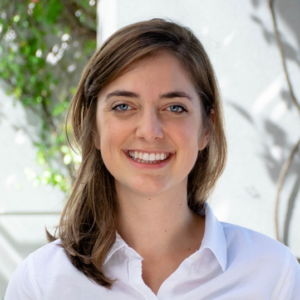
Dorm: Lewis Hall
Email: ecichon@alumni.nd.edu
What are you currently up to?
I have worked in Berkeley, California for a 20-person architecture, urban design, and urban planning firm since I graduated. It has been 3 years now. The firm was started by 3 ND architects in the Bay Area 17 years ago, and they have been doing mission-based work ever since. I am a Designer II!
How you are using or plan to use PSIM in your life and career after college?
At Opticos, my team often leads community engagement, researches and promotes affordable housing, and advocates for people who are homeless. I have helped lead lunch-and-learns about housing models and researched community engagement methods (we have never used focus groups, as our project is such a quick turn around, and often in a different city than we work).
What’s a piece of advice for current students?
I would say, treasure your semester-long projects for these Poverty Studies classes. Do the best research and create the best deliverable you can. Each research project uses so many personal, scholastic, and team skills. If you put in your full effort (even if it means less sleep!), you will bear the full fruits, long term. If you work hard now on these Poverty Studies projects, you will have more to discuss in your next job interview, more experience to build on through your career, and something tangible to reflect on when your scholarly days feel very far away.
Lindsay Hughey, Class of 2010
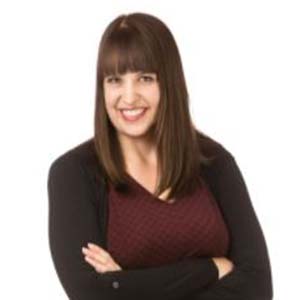
Dorm: McGlinn Hall
Email: lindsay.r.hughey@gmail.com
What are you currently up to?
I am currently a Hydrogeologist and the owner of my own company: Hughey Hydrogeology LLC. After my graduation from Notre Dame, I went to the University of Nevada, Reno and graduated in 2012 with an M.S. in Hydrogeology. I stayed in Reno and worked for Schlumberger Water Services, which was eventually sold to WSP | Parsons Brinckerhoff, from 2011 to 2017, first as a Staff Hydrogeologist and then as a Project Hydrogeologist. From 2017-2018 I worked at McGinley and Associates as a Project Hydrogeologist. In 2018 I decided to go out on my own and started my own business. I consult on a diverse set of environmental mining and energy projects. I specialize in groundwater flow and transport modeling, GIS, hydrogeologic support for dewatering open pit and underground mines, and support for environmental permitting. My current area of expertise is groundwater modeling in MODFLOW to characterize aquifers, predict contaminant transport, predict environmental impacts of mine dewatering and water supply pumping, and simulate the recovery of pit lakes and backfilled pits.
How do you use or plan to use PSIM in your career and life after college?
I used my PSIM during graduate school, as my thesis (An Intercomparison of Evapotranspiration Estimation Methods for the Godomey Well Field in Benin, West Africa) was related to water supply in Benin. I was fortunate to travel to Benin for a couple of weeks as part of my thesis work and to work with the community whose water supply I hoped to improve. At UNR, I became Co-President of the Student Association for International Water Issues (SAIWI) and led a trip to Bocas del Toro, Panama where the group surveyed an aqueduct in an effort to improve water supply for the community, and we also constructed composting latrines as part of a health and sanitation effort. Through my experiences, I came to learn that clean water, health, and quality of life are intrinsically linked. This is the overarching goal of my career and I support important environmental work to ensure that precious groundwater resources are protected, while allowing mining and energy projects to continue. I am a member of the scholarship committee for Ronald McDonald House Charities of Northern Nevada. Although Ronald McDonald House Charities global discontinued their scholarship program (where the local funds were matched by the bigger organization), our committee has kept the scholarship program alive in Northern Nevada. Each year, we fundraise, and award 37 $1000 scholarships to students in Northern Nevada entering college or trade schools, which are then renewable for 4 years. This scholarship program is so important, as the selection criteria are broad – and each year many of the scholarships are awarded to students from disadvantaged backgrounds and students entering trade schools.
What’s a piece of advice for current students?
My advice to current students is to explore what career options are out there and be open to these options as they present themselves. I certainly did not predict that I would end up starting my own business 6 years after getting my master’s degree. During my senior year at Notre Dame, as part of the PSIM program, I took the course “Water, Disease, and Global Health.” This course, and the PSIM program, paved the way for me to do international work during graduate school, which really was the beginning of my groundwater career. Acquiring a niche skill set in groundwater modeling has allowed me the opportunity to work on some incredibly challenging environmental projects, to work for myself, and to have a flexible work arrangement that allows me precious time at home with my two daughters.
Ryan Klaus, Class of 2018
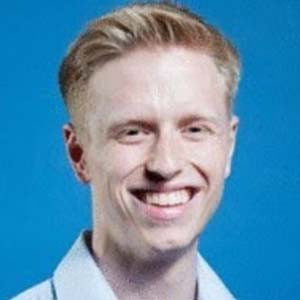
Major: Finance
Dorm: Knott Hall
Email: rklaus2@alumni.nd.edu
What are you currently up to?
Currently, I work for YWCA Metropolitan Chicago, a nonprofit and social enterprise focused on eliminating racism, empowering women, and promoting peace, justice, freedom, and dignity for all through services in the areas of economic empowerment, housing, early learning, sexual violence support, and mental health and wellness. ‘Innovative Finance Analyst’ is my job title with the organization. In this role, I assess the financial viability and potential impact of new strategic initiatives, evaluate financial sustainability and earned income opportunities for existing program areas, and lead research efforts for finance-based solutions that generate revenue and effect social change.
How you are using or plan to use PSIM in your career and life after college?
My primary professional goal during and after college has been to blend my background in PSIM with the skills I developed from my degree in finance. As a result, I have gained experience in many social impact finance and strategy roles, which have included internships with The Chicago Community Trust and Opportunity International as well as a social entrepreneurship and nonprofit consulting fellowship with Teach For America. My current position with YWCA Metropolitan Chicago has been a perfect mix of both of these disciplines given the organization’s emphasis on using finance as a tool for social change.
Outside of my job, I have also made sure to continue to learn about poverty – specifically in the context of my hometown city of Chicago – through volunteering with Sunrise Movement’s Chicago Hub, the Chicago Coalition for the Homeless, and Chi Hack Night, a local civic tech organization. Since graduating, I have become particularly interested in environmental justice and the role that investment in clean energy and renewable resources can play in both working on the climate crisis and reducing poverty.
What’s a piece of advice for current students?
The unfortunate reality of the challenge of anti-poverty work is that it requires addressing so many different systemic inequities simultaneously – including racial and environmental injustice and disparities in financial inclusion, accessibility, education, and health resources. This is why the ‘Interdisciplinary’ component of PSIM is crucial and why every single PSIM student has unique skills and experiences that are so incredibly valuable to improving systems that perpetuate and exacerbate poverty. I hope that all students will recognize the value of their individual perspective and find ways to use their poverty studies education after college. Importantly, if you are determined to have your poverty studies background be a central part of your career, please do not get discouraged if you are having a difficult time immediately finding the right work opportunities. While it often took me a while to search for jobs and internships, I was eventually able to find positions that did align with my skills and interests.
Adrianna Duggan, Class of 2018
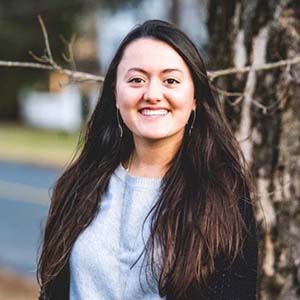
Major: Psychology
Dorm: Welsh Family Hall
Email: aduggan@alumni.nd.edu
What are you currently up to?
After graduation I ️ did a year of service with the Colorado Vincentian Volunteers where I️ lived in community with eight other volunteers and worked as a case manager at a homeless shelter in Denver. Currently, I️ work as a paralegal for the NYS Office of the Attorney General, and I️ work specifically in the Medicaid Fraud Control Unit. Our unit investigates and prosecutes providers (physicians, pharmacies, etc.) involved in Medicaid Fraud, and we also handle nursing home abuse and neglect cases.
How are you using or plan to use PSIM in your career and life after college?
I️ am applying to law school, because I️ love public policy and want to make a career of it. My poverty studies minor drove me to do a year of service so I️ could better understand what policy decisions look like for the people most affected by them. I️ am grateful PSIM gave me the space to critically engage with service work I️ did throughout college, because it also gave me a framework for looking at my career. I️ chose to work in Medicaid Fraud because I️ wanted to understand the enforcement of one of the largest and most important social programs in the US. I’m excited to attend law school so I️ can better understand how existing or potential laws and policies can impact poverty.
What’s a piece of advice for current students?
When it comes to post-grad life, my biggest piece of advice is to keep learning! Think of PSIM as a lens through which you can view your surroundings. No matter what field you enter or where you live, it’s always possible to ask the question how does this decision or event impact the most vulnerable or marginalized? I️ think keeping that question at the forefront is key to continuing the work you have started as a PSIM student.
Kim Nguyen, Class of 2019
Major: Neuroscience and Behavior
Hometown: Lincoln, NE
Dorm: Howard Hall (Go Ducks!)
Email: kim.nguyen@unmc.edu.
What are you currently up to?
I am currently attending the University of Nebraska Medical Center (UNMC). It’s the only medical school in Nebraska with in-state tuition, which is very nice considering how expensive medical school can be. I actually do not know what to specialize in at the moment. I made a few plans to schedule last March-June, but coronavirus derailed those plans. Hopefully I will figure it out when rotations/clerkships occur, but for now, I am interested in anything except surgery and emergency medicine.
How are you using or plan to use PSIM in your career and life after college?
My biggest goal during my gap year was to choose a program that would allow me to utilize PSIM in the real world. I chose to do the AmeriCorps VISTA program because it allowed me to focus on capacity building, rather than direct service. While I was in college, I mostly participated in direct service activities, such as building homes, teaching at afterschool programs, and volunteering at clinics. I was actually inspired by my Poverty Studies senior capstone class to do capacity building! Specifically, we helped begin a social service-system mapping system by collecting survey data from 200+ nonprofit programs in St. Joseph County. Working on a project that benefited an entire community, rather than a specific subgroup of people in a population, really resonated with me and I wanted to pursue that.
For my specific AmeriCorps VISTA program, I worked with the United Way of the Midlands, which serves, guides, and funds 110+ nonprofit programs in Nebraska and Iowa (i.e., the “Omaha metro area”). I worked as the Community Impact Coordinator for the first 4 months, making and delivering attendance awareness kits to pediatric and family medicine clinics. I also worked on a disaster preparedness plan, which was a response to the floodings from Spring 2019. Who knew that the disaster we should have been preparing for would be a pandemic instead of a tornado or flood? I would say that my PSIM really helped me with my roles because I had done research about the floodings in Nebraska for an op-ed that I wrote in the PSIM capstone class. So I felt that I largely contributed to the conversations and documents! Furthermore, I attended coalition meetings for my work on the attendance awareness kits, and Poverty Studies actually introduced me to coalition meetings and how they worked!
During my last 8 months at United Way of the Midlands, I switched over to the Volunteer Engagement Coordinator role and was working on the 2-1-1 helpline after my usual 40 hours/week of work once coronavirus started. I created and managed the volunteer website for the Omaha-metro area, which was really fun! I got to interact with many volunteer directors from the variety of nonprofits in the community to brainstorm on how their needs may be met through modes that abide by social distancing guidelines, such as virtual or delivery modes. The website included safety guidelines for both volunteers and program directors, service opportunity postings, and key coronavirus resources/information for the community. One of my favorite parts about being the website manager and liaison between the volunteers and program directors was hearing about their experiences. I conversed, via email, with many volunteers who were excited to serve during the pandemic. Many did not know it was possible to volunteer with the new social distancing guidelines and how to do it safely. Conversely, many program directors were grateful that volunteers could still assist them during this time. All of my PSIM classes and service opportunities through Notre Dame helped me in this role because I was able to easily relate with both the volunteer and program coordinators/directors since I have now experienced both direct service and capacity building roles.
I think that my most impactful role was when I began to take calls for 2-1-1/ The nonprofit that I worked at for my gap year has a call and text helpline department (2-1-1), which conventionally serves to aid lower income individuals with finding resources (food, housing, utilities, etc.) and other nonprofits in the community. In Nebraska and Iowa, the government marketed that 2-1-1 would be deemed the official 24/7 coronavirus helpline for anyone who had questions or needed assistance/resources during the pandemic. The hospitals and state health departments would update the portal every few days with new FAQs regarding the pandemic, and the nonprofits (e.g., shelters, food pantries, utility voucher programs, etc.) would also update their contact information and current resources so that we could match callers with their specific needs. The helpline began to receive thousands of calls and texts every week. It was exhausting but also truly rewarding. The callers trusted me with all of their worries, which was a massive responsibility but truly touching. I wish that I could describe specific examples of the stories that I heard, but I do not want to break any confidentiality rules. However, I do remember that one man called in to just simply thank me for what I was doing, which was very humbling.
Lastly, for how I am utilizing PSIM in medical school, I would say that it has helped me immensely, despite only being in school for 1-1.5 months so far. I’ve had to practice taking a history and physical (H&P) for two standardized patients so far in my small group communications class. When we received feedback, all of my peers and the facilitator told me that it was great that I innately knew that I should ask permission prior to interviewing a patient about whether it was okay to interview them and take notes. I would also ask them if they would like to be addressed by their first names, nicknames, or last names, which is something else I would get positive feedback on. Many of my peers did not really think about doing this at first. I learned the importance of asking permission in interviews through my Rhetorics of Gender and Poverty course with Dr. Connie Mick, and so I’m glad that it is useful in the medical field! Furthermore, all of the PSIM courses have taught me to think about the big picture and to inquire about social determinants in health. I weaved this into some of the questions that I would ask my standardized patients, which was another positive remark that I got everyone.
What’s a piece advice for current students?
My biggest advice for current PSIM (and all students, in general) is to appreciate your current classes, experiences, and everything around you because you will miss it when it’s over. Our Notre Dame faculty and community are unmatched. It was very easy for me to stress out about a midterm week during college (as if it was the hardest week in the world), but I quickly learned in medical school that everything is relative and your struggles a year ago will seem insignificant in hindsight. Yes, it can get harder, but it is amazing how much you are able to adapt and respond to new challenges. So, as long as you are passionate about what you are learning, putting your mental health first, and trying your best, the grades will naturally parallel your efforts.
William Connolly, Class of 2020
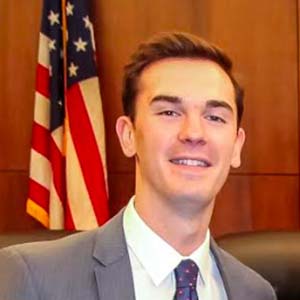
Major: Neuroscience (Nu Rho Psi National Honor Society)
Dorm: St Edwards’s Hall
Email: wconnolly98@gmail.com
What are you currently up to?
I am currently a Medical Student at Thomas Jefferson University (Sidney Kimmel Medical College).
How are you using or plan to use PSIM in your career and life after college?
My school has the largest student-run free clinic network in the country, and I was lucky enough to be selected to serve in the administration. I am in charge of procedures at one of our five clinics serving patients suffering from homelessness around Philadelphia. I get to see patients every week for acute medical problems that might not warrant an ER visit. PSIM has helped me understand that there is so much more than the chief complaint that my patient is dealing with. I am also a part of my school’s Student Opioid Response team. There were over 1,500 overdose deaths in 2019 in Philadelphia. My PSIM experiences have inspired me to be a part of the solution to this crisis. I have also used my poverty studies experience to guide some of my research. I am currently working on a project looking at physician volunteerism and burnout.
What’s a piece of advice for current students?
I am constantly in awe of, and inspired by, the individuals who dedicate their entire careers to fighting poverty. To those of us who might find ourselves headed down a career path that might not directly combat poverty, it is important to remember that the skills and knowledge that PSIM equips us with will be applicable in any field.
